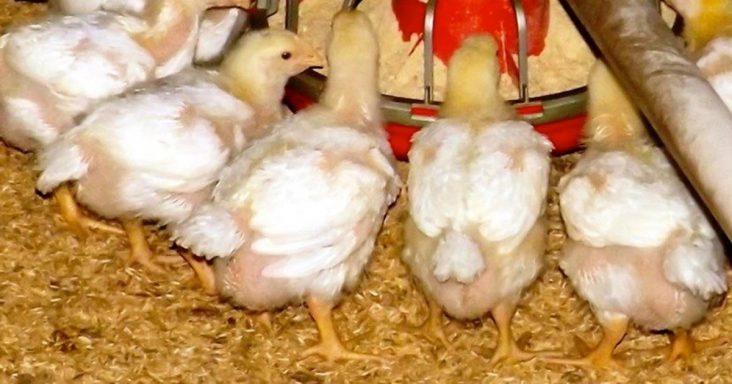UA Division of Agriculture gets grant to study poultry operation gas emissions
by November 9, 2022 11:31 am 749 views

Most greenhouse gas emissions in commercial poultry operations are linked to feed production, and methods to reduce those emissions are the focus of a U.S. Department of Agriculture grant to the University of Arkansas System Division of Agriculture.
The Arkansas Agricultural Experiment Station, the research arm of the Division of Agriculture, has been tapped to conduct measurements of greenhouse gas emissions on farms that grow the two main components of poultry feed — corn and soybean. The measurements will be used to quantify the differences in practices such as conventional tillage and conservation tillage to develop value-added, “climate-smart” products.
Kris Brye, university professor of applied soil physics and pedology with the Arkansas Agricultural Experiment Station, will lead the emissions measurements, and Mike Daniels, professor and soil and water conservation scientist with the Cooperative Extension Service, will lead an outreach and educational component of the grant. The Division of Agriculture’s program includes plans for a monitoring and verification system of greenhouse gases that include carbon dioxide, methane and nitrous oxide. It will also evaluate local market opportunities for direct sale and tracking of grain to broiler operations.
Arkansas is third in the nation for production of chicken broilers. The state harvested over 3 million acres in soybeans and 830,000 acres in corn for grain in 2021, according to the 2022 Arkansas Agriculture Profile. A 2020 life cycle assessment found that feed production contributed about 72% of greenhouse gas emissions associated with broiler production.
As part of the USDA’s Partnership for Climate-SMART Commodities program, the Division of Agriculture will be funded for at least three years to demonstrate the viability of growing more climate-friendly grains for sale to poultry feed operations. SMART stands for Scaling Mechanisms for Agriculture’s Regenerative Transformation.
Support for the project includes funding to create a companion education program with post-doctoral and graduate students, as well as a Climate-SMART instructor and a technician in the Division of Agriculture’s crop, soil and environmental sciences department.
The project will take place on selected Arkansas Discovery Farms and other private landowners’ fields that produce soybean and corn crops. The Division of Agriculture’s Discovery Farms program engages farmers in conservation through collaborative research. There are about a dozen farms in Arkansas associated with the Discovery Farms program.
Mississippi State University is the lead partner in the grant titled “Developing Climate-Smart Grain Markets in the Mid-South through Diverse Partnerships and a Farming-Systems Approach to Practice Integration to Reduce Greenhouse Gas Emissions.” Other partners include Alcorn State University in Mississippi, Southern Ag Services Inc., and Conservation Solutions.
The USDA states that the Climate-SMART program will reach across 28 states and aim to “catalyze a self-sustaining, market-based network to broaden farmer access, scale adoption of climate-smart practices, and sustainably produce grain and dairy commodities with verified and quantified climate benefits.”
